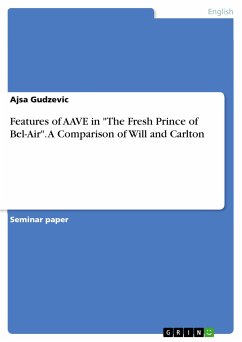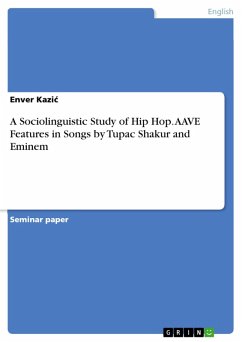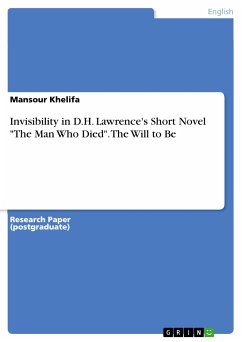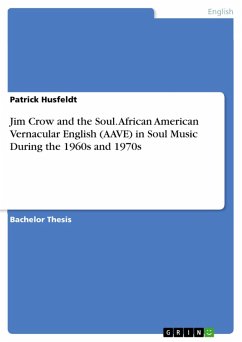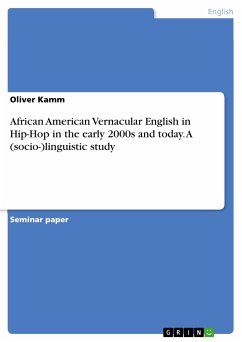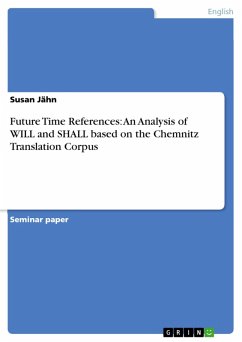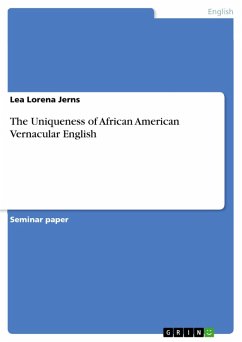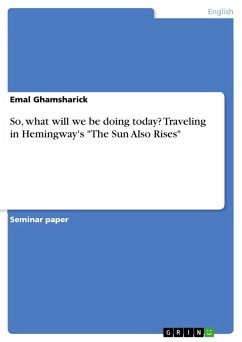Seminar paper from the year 2022 in the subject English Language and Literature Studies - Linguistics, grade: 2,7, Ruhr-University of Bochum, course: English in the USA, language: English, abstract: This paper discusses the use of African American Vernacular English, or short AAVE, in film and theatre based on the analysis of the TV show The Fresh Prince of Bel-Air. In the last few decades, there has been a growing interest in the research of the African American language and how the idiom can be defined and categorized. Many social linguists suggest different approaches on the matter, for example by doing extensive research on speech patterns and common features for a respective part in the US. Previous studies indicate, that AAVE isn't an exclusive sociolect to the African American community but rather a concept that is accessible to a variety of different speakers with different backgrounds. Quiana Lopez and Mary Bucholtz studied the language appropriation by white actors that used AAVE to perform Blackness (2011). Rosalina Lippi-Green was concerned with the reputation of AAVE in films and the social life (2011). However, both studies do not take into account the idea of black actors in a role of an upper-class American falling out of the AAVE stigma and using Standard American English or SAE and in what way it can affect his black identity, which marks the theme of this paper. This paper proposes a new approach, by analysing the speech patterns of Will, a young African American teenager who was raised in the lower-class and his cousin Carlton who grew up in an African American upper-class family. The aim is to answer what features do Will and Carlton use and how are they linked to their black identity. The remainder of the paper is organized into sections. Section II mentions the problem of cultural appropriation speakers of AAVE must face in the 21st Century. Afterwards it clarifies the correlation between language and ethnicity. Section III is devoted to the methodology of this research, i. e. in which way the speech patterns are analysed. The next section reveals the results obtained from the first and 24th episode of the first season of The Fresh Prince of Bel-Air. Section V opens the discussion how one can account for the results and links the results from this paper to the theories of Rosina Lippi-Green and Quiana Lopez.
Dieser Download kann aus rechtlichen Gründen nur mit Rechnungsadresse in A, B, BG, CY, CZ, D, DK, EW, E, FIN, F, GR, HR, H, IRL, I, LT, L, LR, M, NL, PL, P, R, S, SLO, SK ausgeliefert werden.

